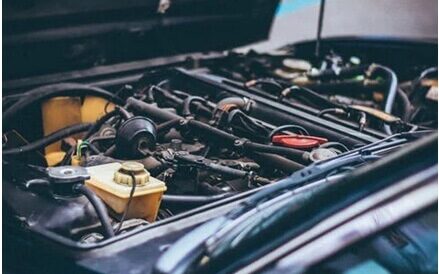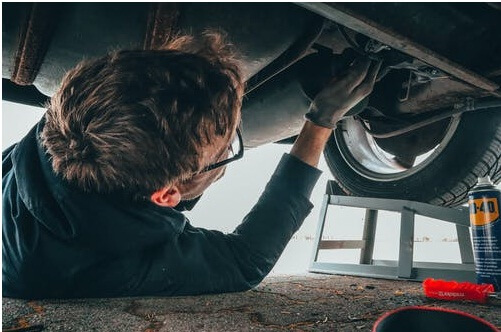Eleven Reasons You Shouldn’t Skip an Oil Change

Even the least mechanically inclined among us will come to the realization that cars and other vehicles need routine care and maintenance, whether or not what that actually means is understood. Everyone knows that cars and trucks need fuel in order to operate. Likewise, whether you’ve ever done it yourself or not, you’re probably familiar with the fact that vehicles use oil, and that their oil needs to be changed every so often in order to ensure the smooth operation of the engine’s internals.
To take a very high-level view of the situation, what you need to understand is that all engines, regardless of the type of engine, the fuel they use, or the technology they incorporate, have moving parts and produce heat. They translate energy from the fuel they burn into these moving parts that go on to actuate the rest of the vehicle and get you from place to place.
These moving parts are, understandably, in contact with each other, and when they are in contact they produce friction and heat. Friction and heat not only decrease the efficiency of the engine but also wear down parts over time. As a result, it is necessary to change the oil of a vehicle periodically, among other routine services.
There is no simple, single answer to the question of “how frequently should I change my vehicle’s oil?” Unfortunately, you can follow the advice of a mechanic, the advice of the manufacturer, or the advice of another experienced individual. In most cases, these will vary considerably. It was conventional to change the oil in most car engines around every 3,000 miles or so. Some people fastidiously change their oil every 2,000 or 2,500 miles. Others will tell you it isn’t necessary until you reach around 5,000, especially with high quality, heat-stable synthetics.
Nonetheless, it is a routine service you shouldn’t skip, regardless of the schedule you follow. If you’re looking for an “oil change near me,” consider also these, our best reasons why you shouldn’t skip an oil change.
Keeps everything in working order
Over time, the oil in your engine will wear out, become gummed up with debris and particulate matter, and break down due to the influence of excessive heat. It’s true that modern synthetic blends are a lot more heat stable than conventional oils, but even these have limits.
Oil lubricates most of the moving parts in your engine. Without oil, and the lubrication it offers, none of the parts in your engine will work with the efficiency that you might expect, so our first reason is basically all of the other ones bundled up into one and summarized succinctly. Routine oil changes are good for the overall health of your engine, and thus, your vehicle.
Extends engine life
Friction, and the heat it produces, as we have mentioned, diminish the efficacy of your engine. The heat produced by friction is also overtly damaging to your engine’s internals. There are some engines out there that, with routine maintenance, have lasted nearly 500,000 miles. There isn’t an engine in the world that could make it a quarter so far without routine care, a significant portion of which is appreciable lubrication that comes from oil changes.
The bottom line is this – routine oil changes will extend the life of your engine, and who wouldn’t want that for their car?
Improves your gas mileage
We’ll take an interesting and extrapolated approach to address this concern, although, to be frank, the claim alone should suffice in its own defense. Routine oil changes improve engine efficiency and that means your gas mileage will be better as a result of them.

There is energy in fuel. Engines combust the fuel and capture some of the energy for your use, to move you from place to place in a car. They do this by converting the potential energy in the fuel to mechanical energy that moves the parts of the engine and is translated through a series of gears and shafts and ultimately to the axles.
Some of that engine, however, is lost as heat. The more the parts of your engine heat up, the less efficient they are at capturing energy and converting it to the forces necessary to transport your car. In short, routine oil changes preserve your fuel economy.
Cleans the engine and keeps it that way
The oil that lubricates your car’s engine also helps to keep it clean. Some particulate waste is suspended in the oil, and though that waste eventually needs to be removed when the oil is changed, the oil helps to keep it off of the moving parts so it cannot cause abrasive damage to your engine.
The more frequently you change your oil (within reason, that is) the better your car will be at keeping itself clean and preventing the damage mentioned above from occurring to some of the moving parts.
It’s better for the environment and can help prevent a failed emissions test
Because an engine that has never enjoyed the many benefits of considerate, routine care including regular oil changes will burn hotter and less efficiently, it will also release more pollutants into the atmosphere. For obvious reasons, then failing to keep a routine oil change schedule for your car is not such a good thing for the environment.
Failing to keep a routine oil changing schedule for your car also might cause you to fail an emissions test as well, which could be an expensive problem to rectify. Sometimes, if the engine burns too hot, it can burn the oil itself, which releases harmful compounds. There are a lot of problems that failing to keep the oil fresh can cause on this front; the point is to keep to a schedule in accordance with the advice of your trusted mechanic.
If you want to learn more about how older or aging oil can adversely impact emissions, please consult our page on emissions testing or get in touch with a specialist at one of our locations.
Helps keep heat down, which reduces wear
As mentioned, an engine that is poorly lubricated will burn hotter, which can burn the oil and release harmful emissions. This is not the only harm that can be caused by running your engine with old oil that is past its prime. Running old oil can also harm the components of your engine outright.
The more friction that occurs between the moving parts of an engine, the more damage and wear will occur to them, understandably. Keeping your oil changed routinely will go a long way toward preventing premature wear to many of the components of your engine’s internals.
Better overall performance and a smoother ride
This one is slightly subjective, at least in terms of how you can “tell” if it matters. There are plenty of objective reasons that you can name for why fresh oil will cause your engine to run so much more smoothly, or you can just get in the car and feel for yourself.
The acceleration will be much smoother, as will be the ride, especially if you have fresh oil. The other thing to keep in mind is that the best way to compare this is not right after an oil change, but rather between two different cars – one that has received routine oil changes and another that has not. You’ll feel it.
It can impact your resale value
If you’re working with the car described above that has received shoddy if any routine maintenance, including regular oil changes, how do you think that will affect the resale value? Now, how do you think it will affect the resale value if you can actually tell that the car has not been well cared for?
That’s a somewhat rhetorical question, since routine care almost always increases the resale potential of a vehicle, whether it’s the oil change we’re talking about or something else.
Routine service can catch potential issues before they arise
The other thing to keep in mind here is that bringing your vehicle in for routine maintenance increases the chances that you will catch potential issues before they arise. There are a thousand and one potential issues that can be stopped in their tracks just by having a second set of eyes on your vehicle when you bring it in for routine maintenance, which brings us to our following point.
It will save you money in the long run
Guess what – because you will be able to catch so many potential issues before they become actual, real issues when you provide your vehicle with routine maintenance including (but not limited to) regular oil changes, you will save money in the long run.
Oftentimes, the repair or replacement of a small, inexpensive but important internal component can save you so much money over time. Replacements before issues arise almost always result in improved performance as well as savings. You’ll probably be looking for an “oil change near me” in no time.
Keeping up with routine oil changes may be a matter of warranty compliance
There’s another thing to consider in all of this, and yes, it is a matter of value and, potentially, resale. In order to keep compliance with any warranty that accompanies your vehicle, you may be required to keep and log routine maintenance such as oil changes.
Naturally, this will not apply to some vehicles, but there is a good chance that it does. Consult your owner’s manual or the dealership from which you purchased your car for more information.
Downright, Honest Service and a No-Nonsense Attitude

Here at Borst Automotive, we understand the need that you have for honest, experienced mechanics who shoot straight and don’t gild the lily. Your car matters to you, and that matters to us. That’s why we’re quick about diagnosis and put things in terms you can understand, even if you aren’t a mechanic.
If you’ve ever had a bad experience with a mechanic before and you want to see what simple, honest service with a focus on the customer experience feels like, then you should get in touch with the staff at one of our locations today!
A.S.E. Certified Technicians
The customer experience is also affected by the level of service offered, and that’s just one of the reasons that all of our technicians are A.S.E. Certified. We stand behind the work we do, and we want to pass that along to our customers.
The Automotive Service Excellence Certification exists to provide a benchmark for the experience and capability of automotive technicians and to protect the car owner’s experience. The certification requires not only testing but also on-the-job experience. We ensure the highest level of service for our customers – and this is just one of the ways that we do so.
Several Convenient Locations
So you’re looking for an “oil change near me” and as a matter of course, it would be best for you if you could find a place that offered you a convenient location as well as expedient, effective service.
We stand behind our service, as we have elaborated above, and we also offer three convenient locations throughout Arizona for our customers. Just find the one that’s closest to you and call to set up an appointment.
Whether you’re looking for an oil change near you around Mesa, Arizona, live in Phoenix, or even in Tucson, we have locations near you!
Contact Us for More Details!
Do you have questions regarding any of the claims we made in this article? Do you want to learn more about why an oil change is not only necessary but necessary at regular, routine intervals? Just get on the phone with us and we’ll answer any of the questions you have!
Check out the links above to see where we are located throughout the state of Arizona and call us at the nearest location. We’ll answer your questions right on the phone and you can even make an appointment to come in and have your oil changed without ever leaving the comfort of your home.

Borst Automotive is here to help when you need it. Give us a call, schedule an appointment, or stop in today!
